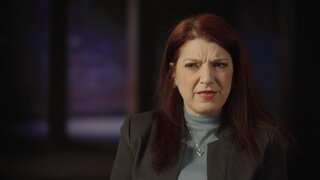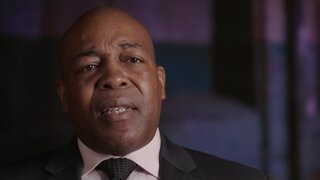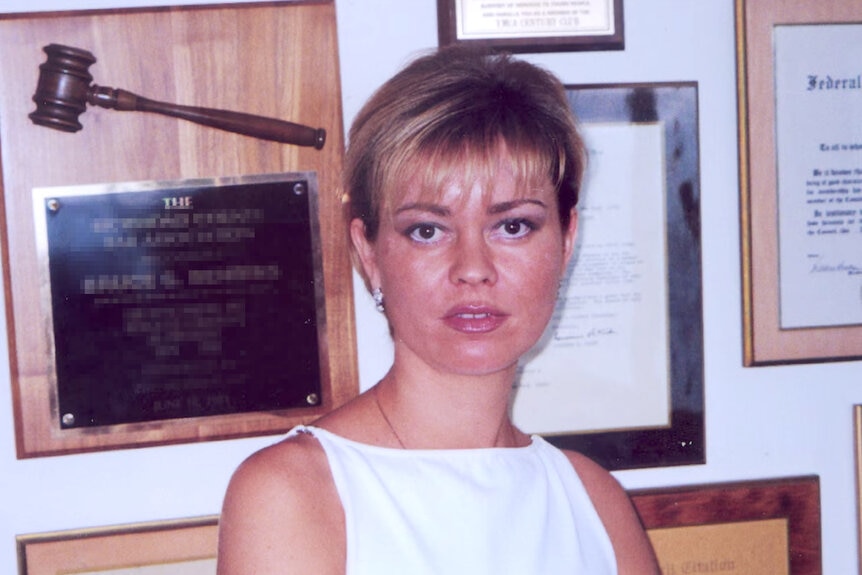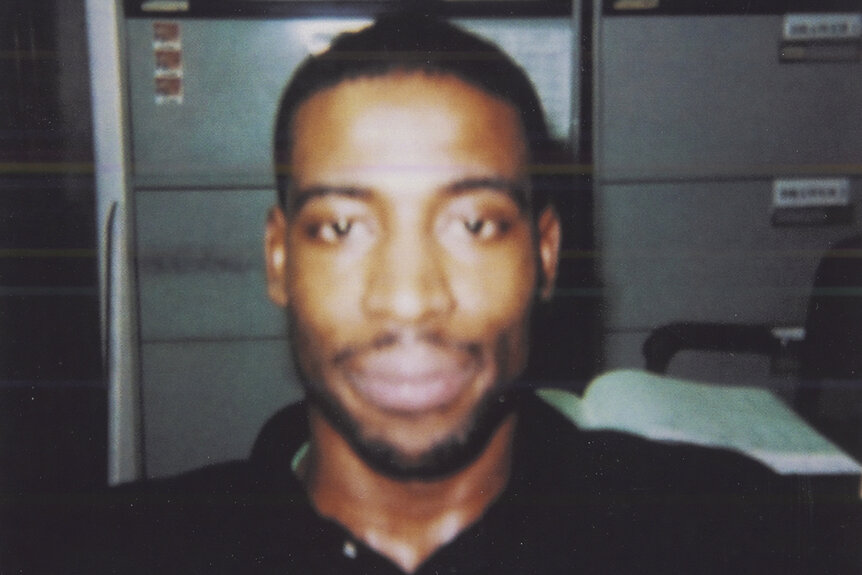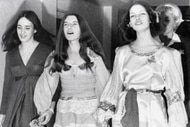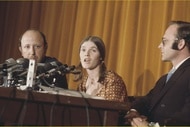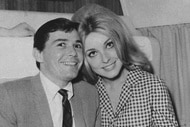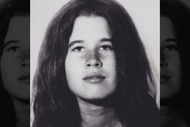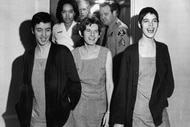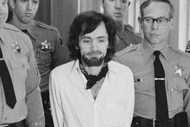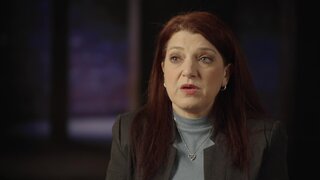Create a free profile to get unlimited access to exclusive videos, breaking news, sweepstakes, and more!
Was a Woman Behind Her Husband's 2000 Disappearance Once Believed to be Russian Mob Hit?
N.Y.P.D. detectives investigated whether the death of Borys Kiejliches could be related to a murdered Russian man found along the Staten Island shoreline, both of whom were found on the same day.
The disappearance of a Russian family man had N.Y.P.D. investigators scrambling to find possible links to organized crime, but the answers would rest much closer to home.
On April 2, 2000, New York detectives were called to the affluent neighborhood of Todt Hill on Staten Island, where Russian woman Elena Kiejliches reported her husband, 49-year-old Borys Kiejliches, missing. Elena had just returned from a week-long vacation at Disney World with the couple’s two children, and Borys and his Mercedes Benz were nowhere to be found.
Elena told authorities she last saw her husband on the evening of March 24, 2000 — the eve of the family trip — and that the pair had a run-of-the-mill spat. Borys wasn't due to join the others for their Florida trip and was gone before Elena woke on the morning of their departure, according to Detective Michael Kenny of Staten Island’s 122nd Precinct.
RELATED: The Shocking Reason Why Two NYC Men Committed “Haunting” 2001 Double Murder
“She tells us that Borys spends about three out of every four weeks in Russia and that it was not unusual for her not to speak to him or see him for a reasonable amount of time,” Kenny told New York Homicide, airing Saturdays at 9/8c on Oxygen.
Who was Borys Kiejliches?
Borys made a living in the jet-fuel business, traveling around the world and earning millions to provide his family with a palatial home, one that included a massive indoor pool. Close friend and financial advisor Yuri Sverdlov referred to Borys as a “mild” and “friendly” man of larger build, someone who’d earned the nickname Wild Boar during his lucrative career.
On top of the millions Borys had saved in the United States, he reportedly had a lot more stowed away in bank accounts in Singapore and Moscow, according to Sverdlov.
“Russian people, as a joke, say, ‘I cannot tell you how I made my first million, but I can tell you about the rest,’” Sverdlov told New York Homicide.
Borys met his wife, Elena, while living in post-Soviet Russia, before using what money they had to move to New York, where they “made a go of it,” Queens Homicide Detective Brian Quinn told New York Homicide. Quinn said Borys seemed to be a “decent human being” who worked hard for his family and gave them the best life he could.
“Borys loved and cared for the children,” said defense attorney Mark Fonte. “Borys was the quintessential bear. He was big, barrel-chested. He had an air about him, an air of confidence.”
According to Fonte, the Russian oil business during the early aughts was “rife with organized crime,” leading detectives to work under the theory that Borys might have had possible ties with the Russian mob.
A Look Into Borys Kiejliches’ Disappearance
A peek into flight records revealed that Borys had not traveled to Russia, which seemed like the most likely possibility for loved ones and investigators. Credit card records also showed no activity since March 23, 2000, the night Elena last saw him, and there were no hits when data from Borys’ missing car was entered into the system.
“It was almost like he just disappeared off the face of the earth,” Det. Quinn told New York Homicide.
Police spoke with friends and family, wondering if Borys left of his own volition. But according to those closest to them, Borys and Elena were “the perfect couple,” according to friend Sverdlov.
The missing persons’ investigation shifted when, on April 9, 2000 — one week after Borys vanished — the Mercedes was found abandoned in Brighton Beach, a heavily Russian section of Brooklyn. Though the vehicle was impounded and processed for evidence, there was nothing to advance detectives in their work.
Kids Make a Gruesome Find
On April 25, 2000, the search for Borys came to a screeching halt when children came upon a cardboard shipping barrel in the wetlands of Jamaica Bay in Queens.
“It’s got a top, and they take it off thinking there might be treasure in it,” Det. Quinn told New York Homicide. “And what they find is a dead human being.”
Fingerprints concluded that the body — tied and wrapped in a blue bedsheet with a yellow floral print — belonged to Borys Kiejliches. A postmortem examination revealed he was shot with a 9mm once in the back of the head at close range and sustained a fracture in the back of the head, apparently from a blow separate from the gunshot wound.
Authorities cited it as an execution-style murder.
“For me, that shows there was some sort of mob-related thing,” Det. Kenny said, adding it was possibly carried out by “a professional assassin.”
Suspicions of organized crime only grew when the slain body of 33-year-old Russian man Yuri Bershadski was found along the Staten Island shoreline on the same day Borys’ body was discovered. Like Borys, Bershadski sustained a single gunshot wound to the back of the head.

However, it was soon discovered that a roommate murdered Bershadski for fears that he knew about the roommate previously killing an exotic dancer. Ultimately, the murders of Bershadski and Borys were unrelated.
According to detectives, an in-depth background into Borys revealed no ties to the Russian mob, and his business was above board. Organized crime also seemed less likely since the vessel used to store Borys’ body was made of cardboard and not weighted down, which felt a bit amateur to detectives.
Police returned to speak with the victim’s friends and family in light of Borys’ confirmed homicide and, in the meantime, they awaited results from the barrel’s manufacturer to see if they could glean more information.
Police circle back to the victim’s friends and family
Investigators were surprised to learn from close friends that Borys’s wife, Elena Kiejliches, was openly having an extramarital affair. She was reportedly very public with the new boyfriend, then-26-year-old Messiah Justice of Brownsville, Brooklyn.
The pair met nearly one year prior, when Justice and friends strolled around Manhattan, trying to pick up women from their car. Witnesses said a relationship blossomed, with Justice living at the Kiejliches’ home most of the time while Borys was away in Russia.
“This was somebody that we definitely had to focus more on,” Det. Kenny told New York Homicide.
Elena showered her new beau with gifts, including jewelry. She even attempted to buy Justice a $100,000 Rolls Royce. Eventually, word got back to Borys.
“He felt it was a slap in the face,” said Yuri Sverdlov. “But the most devastating thing for him was that this is happening in front of his children.”
Suddenly, there was a motive.
“Borys was going to leave her with nothing,” said Det. Kenny. “Messiah wouldn’t continue to get those lavish gifts. Justification from Messiah Justice to kill Borys was that he was living his life for three weeks out of the month, so why not live his life for four weeks out of the month?”
Borys reportedly threatened to leave Elena in financial ruin.
Messiah Justice and Elena Kiejliches are questioned
Justice cooperated with detectives when questioned, though he initially denied having anything to do with the murder. However, around this time, police received word from the barrel manufacturer, who provided the name of a shop where the specific vessel was sold.
The shopkeeper positively identified Justice as purchasing the barrel on March 25, 2000, just one day after Borys’ last-known whereabouts.
Justice shifted gears when presented with the identification, claiming that on the night of March 24, Elena called to say “something terrible happened,” Det. Quinn told New York Homicide. Justice said he drove to Staten Island, and when he arrived, Elena led him to the basement, where Borys lay dead.
Together, they cut a large square piece of carpeting and wrapped the body before loading it in the Kiejliches’ Land Rover. As Elena set off for her family vacation the next day, Justice purchased the barrel and dumped the body at the Brooklyn waterfront, per the boyfriend’s statement.
Phone records, surveillance photos of Justice on the Verrazzano Bridge, and water currents and tides supported Justice’s version of events. However, when brought in for questioning, Elena had a varying account.
RELATED: Fresh Look at NY Actress’ Alleged Suicide Sends Cops on Unexpected Homicide Investigation
She claimed the murder was all Justice’s idea.
Elena told detectives Justice came over and found Borys at home, following the victim down to the basement, where he struck him in the head before using a 9mm to kill him. Borys’ wife said Justice threatened to harm her and the kids if she didn’t help him remove the body.
The murder weapon was never recovered.
“What’s surprising to me is that somebody could so cold-bloodedly kill Borys,” said Det. Kenny.
Police found Justice more credible than Elena since Elena wasn’t forthcoming about the affair and pending divorce at square one. They also couldn’t understand why Elena didn’t call authorities from Florida if, by her account, she was so scared of Justice, to whom she placed hundreds of calls while on vacation.
“The person that had the most to gain by Borys being dead is Elena,” Det. Kenny continued.
Police make an arrest
New York City police arrested Elena Kiejliches in May 2000, charging her with the murder of Borys Kiejliches.
“I was shocked,” said friend Yuri Sverdlov. “I didn’t think she was capable of killing him; they seemed to be a nice couple.”
It was an uphill battle for prosecutors, especially since it was a clear-cut case of he-said, she-said. Justice, who was not charged with murder, would be the key in Elena’s murder trial. He pleaded guilty to lesser charges of evidence tampering and hindering prosecution as part of a bargain with prosecutors.
The trial began on June 6, 2002, at the Staten Island Supreme Court, where Justice took the stand, according to Elena’s defense attorney, Mark Fonte.
“The cross-examination of Messiah Justice was a battle,” Fonte told New York Homicide. “Messiah Justice is the smoothest, most devious conman you can imagine.”
But it was good enough for jurors, and after about three hours of deliberations, they found Elena guilty of second-degree murder. She was sentenced to 22 years to life in prison.
For his part, Justice was sentenced to one to three years behind bars.
“I think they’re both guilty,” said Sverdlov. “No matter who killed him.”
Watch as Season 2 of New York Homicide continues on Saturdays at 9/8c on Oxygen.


